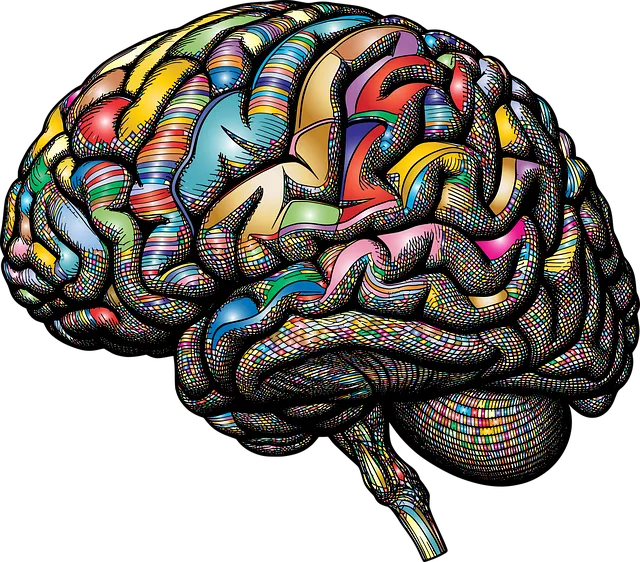The Kaiser Permanente Mental Health Appointment Center in Littleton enhances diagnostic accuracy through innovative practices and comprehensive training. They integrate self-awareness exercises, emotional intelligence workshops, and cultural sensitivity into their approach, ensuring patient-centric care. Regular updates on research and evidence-based strategies through workshops empower healthcare professionals to accurately diagnose diverse mental health concerns. This holistic, culturally competent method prioritizes improved patient outcomes by addressing professional burnout and fatigue.
Mental illness diagnosis accuracy is a critical aspect of patient care, and continuous efforts are underway to enhance this process. This article delves into innovative strategies employed by leading healthcare organizations like Kaiser Permanente Littleton to improve diagnostic techniques in mental health assessments. We explore comprehensive training programs that empower clinicians, as well as the integration of technology in precision mental health care, focusing on how digital tools can personalize treatment plans. By leveraging these advancements, Kaiser Permanente Littleton aims to provide more accurate and effective care for patients navigating their mental health journey.
- Enhancing Diagnosis Techniques at Kaiser Permanente Littleton
- – Exploring innovative approaches to improve accuracy in mental health assessments.
- Training and Education: Empowering Clinicians
Enhancing Diagnosis Techniques at Kaiser Permanente Littleton

At Kaiser Permanente Littleton Mental Health Appointment Center, there’s a concerted effort to enhance diagnosis techniques, driven by a commitment to precision and patient-centered care. The center has implemented innovative tools and training programs that leverage emotional intelligence to foster deeper understanding among healthcare providers. By integrating burnout prevention strategies for healthcare providers into the fabric of their operations, Kaiser Permanente Littleton aims to mitigate professional fatigue, enhancing both provider well-being and diagnostic accuracy.
Through regular workshops on resilience building, healthcare professionals are equipped with the skills needed to navigate complex emotional scenarios effectively. This holistic approach acknowledges that mental health diagnosis isn’t just about clinical knowledge but also about cultivating empathy, active listening, and emotional awareness. Such efforts collectively contribute to a more nuanced and accurate mental illness diagnosis at Kaiser Permanente Littleton Mental Health Appointment Center.
– Exploring innovative approaches to improve accuracy in mental health assessments.

Mental health professionals at Kaiser Permanente mental health appointment centers, such as the one in Littleton, are continually exploring innovative approaches to improve the accuracy of their diagnoses. One emerging area of focus is incorporating self-awareness exercises and emotional regulation techniques into assessment processes. These tools empower individuals to better understand their experiences, providing valuable insights that can enhance diagnostic precision. By teaching patients to identify and articulate their emotions effectively, healthcare providers gain a deeper understanding of their mental health states.
Additionally, cultural sensitivity in mental healthcare practice plays a pivotal role in enhancing diagnosis accuracy. Recognizing the influence of cultural backgrounds on mental health expressions, professionals are now integrating culturally responsive assessments. This involves tailoring evaluation methods to respect diverse perspectives and belief systems, ensuring that symptoms are interpreted accurately within each patient’s unique context. These progressive strategies at Kaiser Permanente reflect a commitment to delivering more precise and culturally competent care.
Training and Education: Empowering Clinicians

The journey towards enhancing mental illness diagnosis accuracy begins with empowering clinicians through comprehensive training and education. The Kaiser Permanente Mental Health Appointment Center Littleton, for instance, is at the forefront of this initiative, offering advanced workshops and seminars tailored to improve diagnostic skills. These educational programs delve into the latest research, clinical practices, and evidence-based strategies, ensuring healthcare professionals are equipped to handle a diverse range of mental health concerns. By fostering a deeper understanding of various disorders and their nuanced presentations, clinicians can make more precise diagnoses.
Empowering clinicians with knowledge goes hand in hand with encouraging self-reflection and mental wellness journaling exercise guidance. Many professionals now recognize the benefits of documenting their experiences, thoughts, and challenges. This practice promotes self-awareness exercises, enabling them to identify personal biases and stay updated on the latest advancements in mental health care. Through continuous learning and introspection, healthcare providers can deliver more accurate and personalized treatments, ultimately improving patient outcomes.
Efforts to enhance mental illness diagnosis accuracy, such as those practiced at Kaiser Permanente Mental Health Appointment Center Littleton through innovative techniques and comprehensive clinician training, hold promise for improving patient outcomes. By embracing advanced assessment methods and fostering a culture of continuous learning, healthcare providers can ensure more precise and timely diagnoses, ultimately offering personalized, effective treatments that meet the unique needs of each individual.






